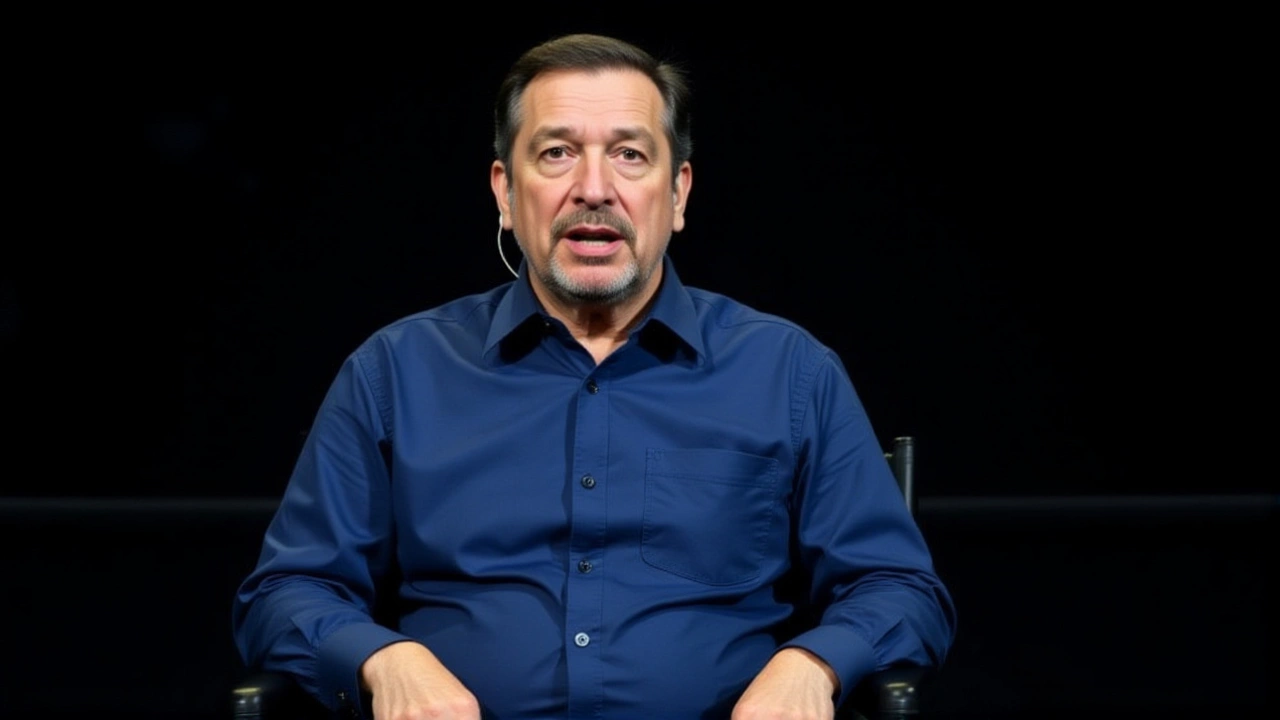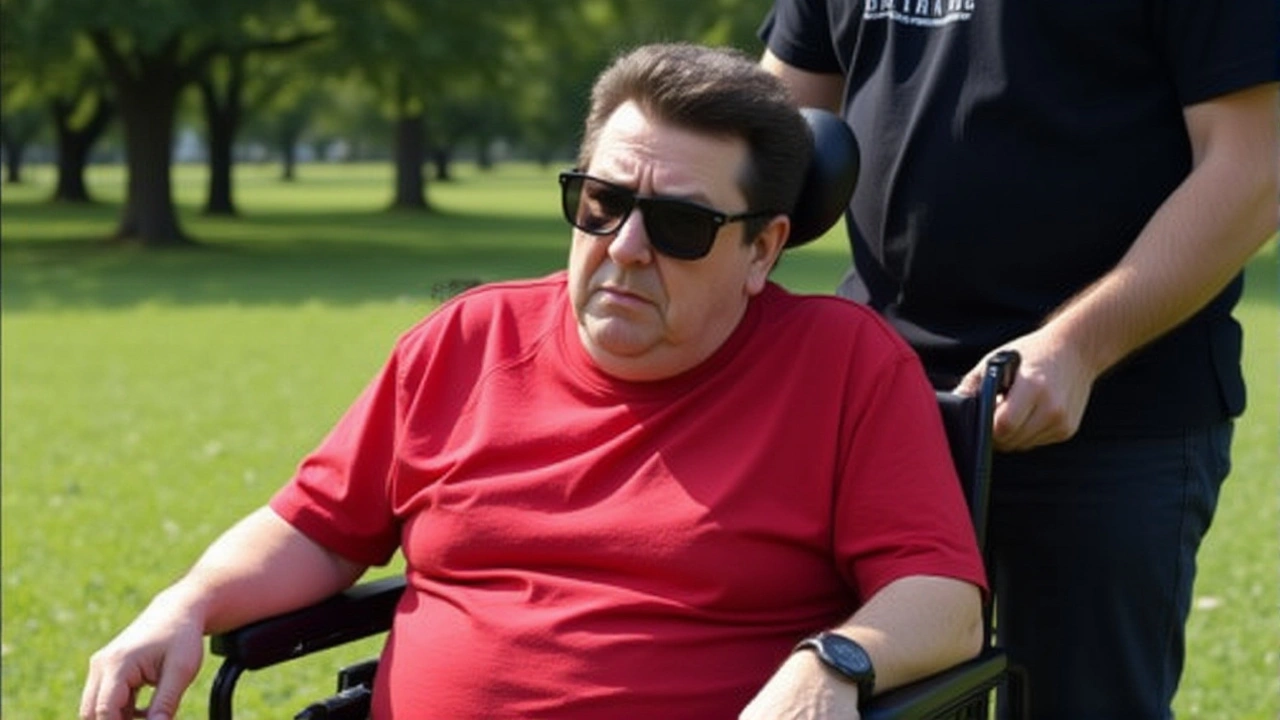When Tim Curry, a British actor rolled onto the stage of the Academy Museum in Los Angeles on September 26, 2025, the sold‑out house erupted. The 79‑year‑old, forever associated with the glittering drag of Dr. Frank‑N‑Furter, arrived in a wheelchair and announced, “I still can’t walk, which is why I’m in this silly chair.” The statement, delivered at the Rocky Horror Picture Show 50th Anniversary CelebrationAcademy Museum, Los Angeles, set the tone for a night that blended nostalgia with raw honesty.
Background of the 50‑Year Milestone
The cult classic first hit screens in 1975, and its midnight‑screen tradition has never faded. Over five decades, audiences have turned the film into a participatory ritual—throwing rice, shouting “Time warp!” and, most importantly, finding a safe space to express themselves. Organizers of the anniversary event promised a night of costumes, props, and surprise appearances. Fans arrived dressed as their favorite characters, clutching glitter‑covered “Time Warp” props, ready to celebrate what many consider a cornerstone of LGBTQ+ pop culture.
With the Academy Museum hosting, the organizers aimed for a high‑profile showcase that would honor both the film’s artistic legacy and its grassroots fanbase. The museum’s cinema hall was packed to capacity, and the atmosphere crackled with the kind of electric anticipation you only see at a rock‑concert‑meets‑theatre‑marathon.
Curry’s Health Update and Stroke History
During his brief remarks, Curry didn’t just thank the crowd—he gave a candid health update that left many in the audience reaching for their phones to scroll for more details. "I still have real problems with my left leg," he said, his voice steady despite the wheelchair’s squeak. The actor’s 2012 stroke, which happened during a routine massage, had been publicly disclosed only a year later when his agent told The Daily Mail that he was "doing great" and "recovering in great humour."
The stroke left Curry with permanent mobility challenges. Though he regained speech and continued to act, the left side of his body remained weakened. "I won’t be singing or dancing anytime soon," he added, a line that drew an audible gasp before the audience burst into applause. The honesty reminded fans that behind the theatrical bravado sits a man still battling daily limitations.
Medical experts note that strokes can cause long‑term motor deficits, especially when they affect the brain’s motor cortex. Therapies focus on physical rehab, but recovery can be incomplete, as Curry’s experience illustrates. His decision to speak openly about his condition has been praised as a brave move that could inspire others facing similar health battles.
Fans, Cast, and Celebration Highlights
Joining Curry on stage were several original cast members who helped keep the night grounded in its theatrical roots. Barry Bostwick, who played Brad Majors, raised his hand in a theatrical salute. Patricia Quinn, the unforgettable Magenta, flashed a grin that lit up the room. Nell Campbell, a.k.a. Columbia, hugged Curry and whispered a backstage joke that only those who’d been on set could decode. Producer Lou Adler capped the introductions with a short video montage tracing the film’s journey from London’s stage to Hollywood’s silver screen.
Between the introductions, clips from the original 1975 film were projected, interspersed with fan‑made videos that showcased the global impact of the movie’s “time warp” dance. A particularly moving moment arrived when a young drag performer, decked out in a sequined Frank‑N‑Furter costume, took the stage to perform a monologue about the film’s role in their coming‑out story. The crowd responded with a standing ovation louder than any of the scheduled musical numbers.
Mid‑night, the museum’s lights dimmed, and the iconic opening notes of "The Time Warp" rang out. The audience sang along, many holding up glow sticks, creating a sea of color that mirrored the film’s psychedelic aesthetic. Even with Curry’s limited mobility, his presence alone amplified the emotional resonance of the moment.

Career Adaptations and Upcoming Memoir
Since the stroke, Curry has pivoted toward voice acting, lending his distinctive baritone to animated projects and video games. Fans recall his turn as the King of All Cosmos in "Katamari Damacy" and his narration work on the documentary series "The World’s Most Dangerous Roads." This shift allowed him to stay active in the industry without the physical demands of on‑screen performance.
Adding to his creative output, Curry announced the upcoming release of his memoir, Vagabond, set to hit shelves on October 7, 2025. The book promises an unflinching look at his rise from a stage‑hand in London’s West End to Hollywood stardom, interwoven with reflections on his health journey. Early excerpts suggest a candid tone, with Curry describing the massage‑room stroke as “the most bewildering moment of my life.” The memoir is already generating buzz, with pre‑orders exceeding 15,000 copies in the first week.
Industry insiders see the memoir as a strategic move: it not only caps a half‑century of Rocky Horror fame but also re‑positions Curry as a storyteller in his own right, potentially opening doors to speaking engagements and documentary projects focusing on resilience in the entertainment world.
What’s Next for Curry and the Rocky Horror Legacy
Looking ahead, Curry hinted that while he won’t be hitting the dance floor anytime soon, he remains open to cameo appearances that fit his current physical limits. "If there’s a voice‑over or a cameo where I can still be myself, I’m all in," he said, flashing a smile that seemed to say, "The show goes on."
The Rocky Horror franchise continues to expand, with a planned Broadway revival slated for early 2026 and a rumored streaming‑service reboot that could bring the story to a new generation. Curry’s involvement—whether as a narrator, consultant, or surprise guest—could bridge the original cult following with fresh audiences.
For fans, the night at the Academy Museum served as both a celebration and a reminder: beloved icons age, face health hurdles, and nevertheless leave indelible marks. As Curry’s own words echoed, “Don’t dream it, be it.” That mantra, now over five decades old, still feels like a rallying cry for anyone daring to live unapologetically.
Frequently Asked Questions
How does Tim Curry’s health update affect his future performances?
Curry confirmed he won’t be singing or dancing in the near term, so any future roles will likely emphasize voice work or limited‑movement cameos. This shift lets him stay active without risking further injury.
What is the significance of the 50th‑anniversary celebration?
The event marked half a century of a film that reshaped queer representation and audience participation. It gathered original cast members, fans, and new talent, underscoring the movie’s lasting cultural impact.
When will Tim Curry’s memoir be released?
Vagabond hits bookstores on October 7, 2025. The memoir chronicles his early career, the 2012 stroke, and his ongoing work in voice acting.
Who else appeared with Curry at the celebration?
Original co‑stars Barry Bostwick, Patricia Quinn, Nell Campbell, and producer Lou Adler joined Curry on stage, adding nostalgia and star power to the event.
What are the plans for future Rocky Horror productions?
A Broadway revival is slated for early 2026, and a streaming‑service reboot is in development. Curry may serve as a consultant or provide voice‑over work, keeping his legacy intertwined with new interpretations.
